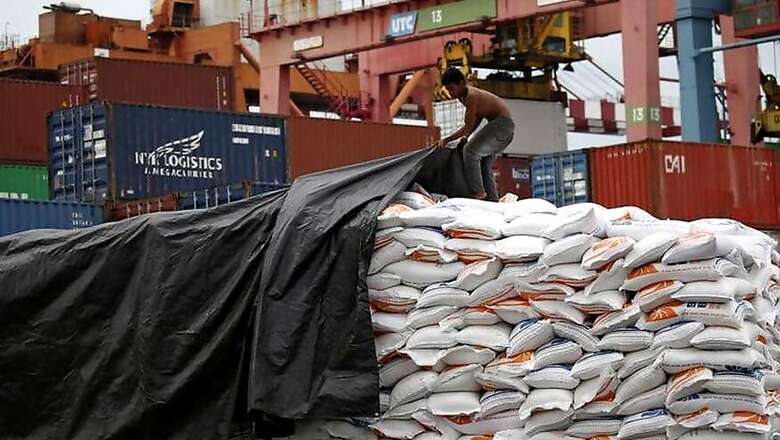
views
New Delhi: Ahead of Prime Minister Narendra Modi's visit later this month for the biannual inter-governmental consultancies (IGC), Germany on Tuesday made a strong pitch for resuming negotiations for an EU-India free trade agreement (FTA) and reaffirmed its support for New Delhi's bid for membership of the Nuclear Suppliers Group (NSG).
Germany is among the countries with which India has terminated bilateral investment protection treaties (BITs) following a new BIT model New Delhi released in December 2015.
Following the expiry of the India-Germany BIT in March this year, German Ambassador Martin Ney told the media here that while existing investments from India in Germany or vice-versa will be protected for the next 15 years under the old set of rules, all new investments will not have any protection until a new treaty is signed.
Stating that European Union (EU) member-states have passed on the responsibility of investment protection negotiations to the EU, Ney said that the European Commission and the Indian government should "sit down as soon as possible" to negotiate a free trade agreement.
Modi and German Chancellor Angela Merkel will head the fourth round of IGC on May 29-30 in Berlin. Germany is the only country with which India has the IGC arrangement which started in 2011.
"In the last inter-governmental consultations (in 2015), Prime Minister Modi and Chancellor Merkel spoke out strongly in favour of resuming FTA negotiations between the EU and India," Ney said.
He laid stress on the necessity of the FTA, and said the EU was India's largest trading partner.
"If you want to shape globalisation, you do it by writing it into treaties," the German Ambassador said, adding that there were strategic reasons for this too.
He cited the One Belt One Road (OBOR) summit hosted by China earlier this month as another reason for an FTA between India and the EU.
"India has not participated in the OBOR summit. The European countries have participated but have not signed up to the trade declaration of OBOR," Ney said.
Describing the OBOR as a China-centred trade enhancement system, Ney said: "If both the EU and India have certain hesitations about it, it should give us extra incentive to sit down and resume negotiations on a free trade agreement."
Giving a larger picture of the upcoming talks in Berlin, the ambassador said both India and Germany believed in the tenets of democracy and a rules-based international order.
He said both countries cooperate closely in terms of G20 coordination, UN Security Council reforms, freedom of navigation including the UN Convention on the Law of the Sea (Unclos), strategic importance of the Indian Ocean region, the fight against terrorism and stability in Afghanistan.
"Germany supports India's membership in different export control regimes, including the NSG," he said.
The German envoy pointed out that the two countries have over 25 working groups, including in areas like climate change, energy, infrastructure and tourism.
He said that like in the last IGC in 2015, there will be "series of substantial MoUs (memorandums of understanding) and joint declarations of intent" after the talks in Berlin.
One of the most important areas in which these agreements are likely to be signed, according to Ney, is business.
"The Indo-German Chamber of Commerce is the biggest German bilateral chamber outside Germany. It has more than 7,000 German and Indian member companies," he said, adding that over 1,800 German companies were doing business in India.
Since 2010, he said German companies have invested almost Rs 53,000 crore in India, including Rs 8,121 crore in last year alone.
"India is interested in German technology and knowhow and we are interested in sharing this," he said.
According to the envoy, start-up ventures will be another area that will come under discussion with both countries having "great ecosystems" for this.
Other sectors which he mentioned might come up for discussion include vocational education and training, pollution control in the face of rapid urbanisation, renewable energy, agriculture, defence production and cultural cooperation.
In terms development cooperation, he said India was Germany's largest development partner with Berlin giving around Rs 7,000 crore in development aid each year.


















Comments
0 comment